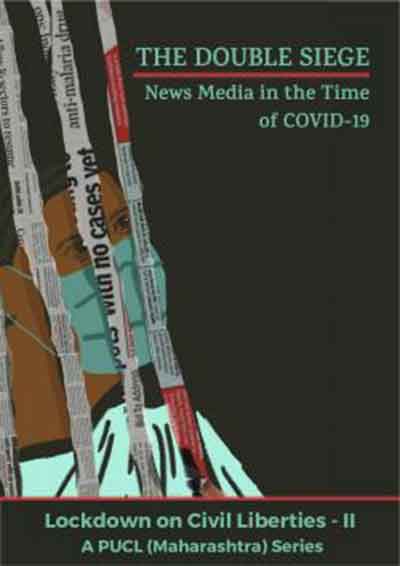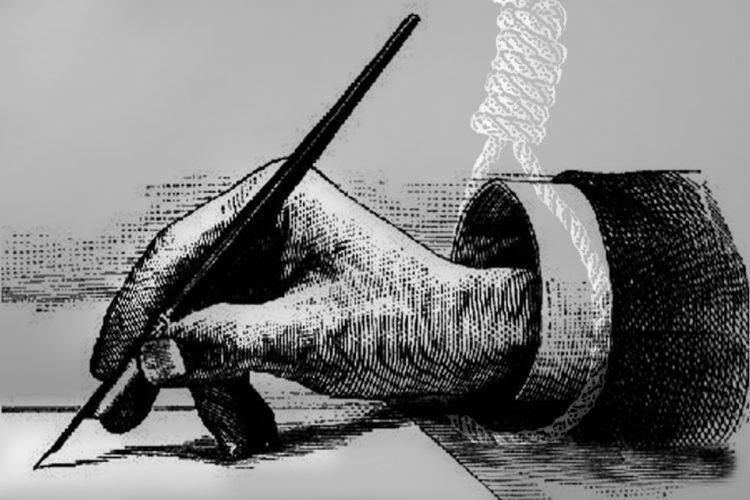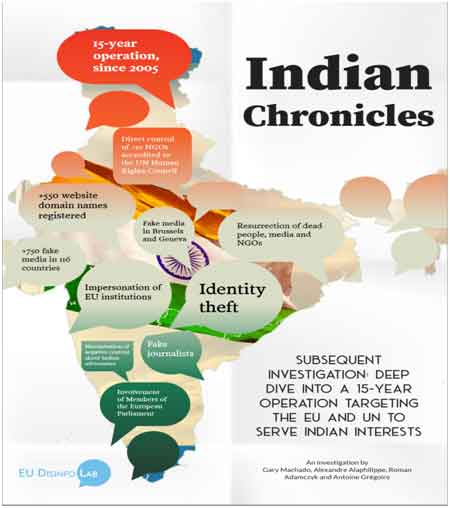Conjuring consent in a post-factual, post-truth scenario
Freedom of the press is under siege: from without by the State and its thriving band of storm troopers and from within by the owners of private media who have cut loose from the rule of law and due process, rendering scores of journalists at the precipice of precarity.
This seemingly relentless double assault, along with the withering away of vital judicial processes, has resulted in an unparalleled impasse for press freedom, in some ways more noxious than the dark days of the 1975-77 Emergency, but equally damaging to the people’s right to freedom of speech and expression.
Information and transparency are key elements in any functioning democracy, more so during the current global socio-economic crisis. In the five months of a lockdown due to the global Covid-19 pandemic, the cumulative failure of years of mis-governance was laid bare in full public view.
The Union Government, in keeping with its general information policy, has, however, opted for a “need to know” approach as far as COVID-19 is concerned, with the government itself deciding the contours of “need”. There is unaccountable silence on essential issues (the plight of migrant workers, for instance). Instead, garrulous trivialities and whimsical spectacles like the banging of plates have become the hallmark of this dispensation.
A largely compliant media, heavily dependent on State advertising, has become the unquestioning purveyor of ‘official’ information and of narrow nationalism. Prime time on television channels has replaced serious debate with rabid and dangerously inflammatory talk shows, ratcheting up of public opinion to divert and disguise serious issues. A case in point was the manner in which television anchors and reporters of prominent television channels competed with one another to cover the tragic death of hindi film actor Sushant Singh Rajput.
In marked contrast to this aggressive and unrelenting coverage, the media remained supine and failed to rigorously scrutinize government policies and actions on a range of issues, including environmental regulations; the PM-CARES Fund; the Galwan crisis; the domicile law in Kashmir; the prolonged economic crisis; the crisis of neglect in public health care; the questionable awarding of contracts to pharma companies for COVID-19 related drugs; the foisting of cases against victims and rights activists in connection with the Delhi violence and the precarious condition of prisoners in jails, including those accused in the Bhima-Koregaon cases.
Journalists who did question the administration were arrested, faced criminal charges or were intimidated. More than a hundred journalists across India have lost jobs or face wage cuts. The so-called powerful Fourth Estate has all but ignored the crackdown on journalists who have revealed administrative failure or remained criminally silent while field reporters are attacked. There is a collective failure of media organisations, including the statutory Press Council of India or self-regulatory authorities set up by broadcasting companies to respond effectively to these attacks.
The status of media freedom in India has been precarious for several years now, with the killing of journalists and increasingly vicious attacks, shrouded by near-total impunity[1]. Since 2014, there have been more than 200 serious attacks on journalists in India, targeted for their investigative work. Not a single attack resulted in a conviction. In the latest attack, three journalists of Caravan magazine were beaten by a mob in North East Delhi on Aug 11[2]. Till date, despite complaints submitted by the journalists, police have not even registered an FIR.
In April 2020, India ranked at No 142 in a yearly global ranking on press freedom by the international press freedom body, Reporters Sans Frontières (RSF)[3]. India slipped two places down in the ranking from the previous year, based on a series of indices including media independence, environment, self-censorship, transparency and legislative framework. News reports have emerged of the extent to which the cosy relationship between the ruling BJP and the social media network Facebook in India influenced electoral campaigns and censored dissenting voices.
The situation is further exacerbated by the State’s disregard for media freedom and complete indifference to the massive job losses in the media. This, combined with the lack of concern for the safety of journalists on the frontlines, has weakened and hollowed out the mechanisms for newsgathering. The casualty has been the media’s authority to hold the powers-that-be accountable.
Dire need to combat regulation and censorship; protect independent media and preserve freedom of expression
The crisis of the media is a crisis for the democratic right to freedom of expression and information. The media has a responsibility to society to function without fear or favour. Journalists are its foot soldiers, its frontline warriors for information.
The Covid-19 pandemic is closing in on a million deaths all over the world. It has spawned immense anxiety, caused economic havoc, accelerated the breakdown of overburdened and under-funded public health care and laid bare the abject failure of governments across the globe in dealing with the crisis.
Until July 4, 2020, an estimated 971 persons lost their lives due to non-Covid related causes, including over 400 migrant workers who lost their lives in accidents while travelling back home or due to starvation, according to a public database maintained by researchers[4]. On May 8, 16 workers died when a good train crushed them when they fell asleep in exhaustion on the railway tracks near Aurangabad; others died after police beat them for venturing out during the lockdown, were denied timely medical care or died by suicide.
Undoubtedly, there were stirring reports of courage and resilience, of the long journeys undertaken by people to travel to their homes, of friendship and solidarity. The policy decisions that led to these extraordinary acts cannot be obliterated. There is much the media needs to examine. For instance, reports of caste discrimination faced by migrant workers in quarantine centres, such as this, or of the segregation of patients on the basis of religious denomination, such as this, were few and far between.
Today, there is a crucial need for an informed and participative public to deal with the pandemic and its aftermath. A plethora of digital startups and independent, individual and collective, efforts by journalists have stepped in to fill the gap. Using social media platforms, despite limited reach and the ever-present threat of censorship and shutdowns, they continue to tell the stories that matter.
While they spell hope, the propaganda juggernaut is moving inexorably along, laying waste established principles of journalism in the process. The trivialization of news events makes a daily spectacle of reality while partisan media, along with the mushrooming fake news factories, are a potent cocktail of disinformation.
The state in its current neo-liberal saffron avatar has turned into a ruthless surveillance and punitive machine for crushing all dissent. The democratic rights of the people have been trampled upon and the plight of the most marginalized is disregarded while government policies, including tax breaks and subsidies, brazenly enrich plutocrats.
We have already experienced a dangerously shrinking space for dissent. Self-censorship is slowly becoming the new normal. In this context, every effort to speak truth to power must be assiduously nurtured and protected.
[1] Getting away with murder – A study on the killings of and attacks on journalists in India 2014-19, and justice delivery in these cases, Geeta Seshu and Urvashi Sarkar, Dec 2019, https://www.thakur-foundation.org/report-on-attacks-on-journalists-in-india-2014-2019.pdf
[2] ‘The Caravan’s journalists assaulted, sexually harassed in northeast Delhi’ , Aug 12, Caravan
https://caravanmagazine.in/crime/the-caravan-journalists-assaulted-sexually-harassed-in-northeast-delhi
[3] https://rsf.org/en/ranking_table
[4] The database is maintained voluntarily by Aman (Assistant Professor of Legal Practice at Jindal Global School of Law), Kanika Sharma (PhD student at Emory University), Krushna (PhD student at Syracuse University) and Thejesh GN (Public Interest Technologist), with support from Roadscholarz, a group of freelance scholars and student volunteers interested in action-oriented research. https://thejeshgn.com/projects/covid19-india/non-virus-deaths/
Table of Contents
Introduction………………………………………… 1
I The Siege Without…………………………….. 4
State Regulations………………………………………………… 4
Public’s Right to Information………………………………….. 8
Crackdown on Media covering lockdown………………… 9
Censorious climate affects all news……………………….. 16
Chinese Apps banned: national security…………………. 17
Kashmir: Continuing Intimidation and Curtailment of Internet Access………………………………. 18
Censorship of Environmental campaigns……………….. 19
Media policy and the advertising carrot…………………… 20
II The Siege Within……………………………… 23
Partisan Media……………………………………………………. 23
Palghar lynching…………………………………………………. 24
Journalists: The new precarity………………………………. 26
Legal challenges…………………………………………………. 29
III Conclusion……………………………………… 31
You can read the full report here
SIGN UP FOR COUNTERCURRENTS DAILY NEWSLETTER


















































